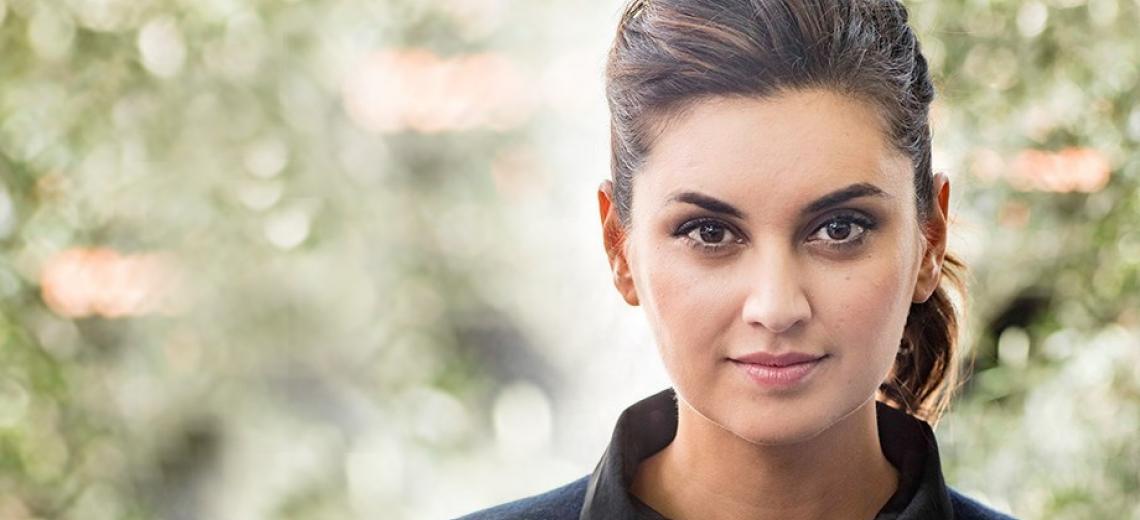
Last month, alongside the likes of tennis star Ash Barty and journalist Annabel Crabb, prominent author and CBE alumna Jamila Rizvi was named the Victorian recipient of the 2020 Australian Award for Excellence in Women's Leadership.
Widely regarded as a woman of influence and a renowned commentator on gender equity issues, Jamila assists the mentorship climate for women and the power of enthusiasm at the workplace.
In an interview with us, Jamila discusses the bias leaders should actively work against, how women in literature have inspired her and why she wants to interview Greta Thunberg.
Q. In 2014, you were named as one of Cosmopolitan’s 30 Most Successful Women Under 30. The following year, the Australian Financial Review listed you as one of Australia’s 100 Women of Influence. And now, the recipient of an award for Excellence in Women’s Leadership.
What do you regard as the least discussed challenge for women of influence?
Even the most privileged women in the world, those who have independence and influence, face barriers to equality. While some of the more obvious sexist elements of our society have been eradicated, scratch even a little below the surface and you will see insidious double standards remain. Fighting back against stereotypes and systemic obstacles becomes even more difficult when others fail to see them.
Q. What is your assessment of the mentorship climate for women in leadership positions in Australia?
Mentorship is essential when it comes to seeing yourself represented in roles of leadership and being able to ask open and honest questions about future challenges. However, women have generally been good at seeking out advice and educational opportunities from one another. The next step is for those in positions of power, to move past mentorship, to sponsorship. Leaders should be actively working against women’s socialised confidence bias and tapping women on the shoulder, to give them opportunities they might not otherwise feel they are ready for.
Being an enthusiast is the most underrated of qualities. Regardless of your job, role, level, and organisation, enthusiasm is always welcomed and remembered.
Q. Your Twitter bio says: Without Hermione, Harry dies in book one. Which literary character might make an appearance in the next version?
Hermione Granger is one awesome character, especially now she’s been reimagined as a woman of colour in the on-stage version of Cursed Child. I have always been inspired and excited by women in literature and am comforted by the fact that generations of girls have imagined their worlds as larger and more open, thanks to what they’ve read on the page. Stay tuned for, perhaps, a turn to the non-fiction world. I do love everything Roxanne Gay seems to say. The woman gives excellent quote.
Q. Your third book, Broken Brains, is now in the pipeline. What was different about the writing process this time around? Did anything surprise you?
I am learning, as I go, just how much I do not know. This is a new genre of writing for me, moving away from the gender space where I am so comfortable and generally well read. I have had to go back to basics with my research and have benefited from the intelligence of hundreds of people who have given first person interviews.
I'm comforted by the fact that generations of girls have imagined their worlds as larger and more open, thanks to what they’ve read on a page
Q. Could you name one personality from the present and one form the past you would love to interview and why?
I wish I had been able to interview Maya Angelou because she was one of the most poignant and beautiful writers of her generation. I would relish the opportunity to sit down with Greta Thunberg as well, partly because of her activism, but also to explore how shyness and a global profile coexist for someone so young.
Q. How did your degrees in Commerce and Law at ANU prepare you for your career?
I remember being confused when I started university by how much people spoke about the need for a “good, generalist higher education.” I felt, at the time, that what I was learning was quite specialised. I now see that despite pursuing careers in government, media and writing, my original training has been immensely useful and applicable. I learned to be a citizen of the world, a thinker across and beyond disciplines, and a lot about leadership at ANU.
[At ANU] I learned to be a citizen of the world, a thinker across and beyond disciplines, and a lot about leadership.
Q. In your experience, what are some attributes of individuals who are most successful in your field?
Being an enthusiast is the most underrated of qualities. Regardless of your job, role, level, and organisation, enthusiasm is always welcomed and remembered. Throw yourself into the things you are doing and make sure there’s a You-shaped-hole left in the wall when you leave. Warmth, energy and passion will never go out of fashion.
Q. Could you share three career lessons to current ANU students?
-
Managing up is as important as managing down. You need to manage your superiors at work — their expectations, their personalities and yes, even their moods. This is how you are able to get noticed for the right reasons.
-
There is nothing wrong with working in a way or in a role that doesn’t move you ‘forward’ in the traditional sense. Life happens and sometimes work can just be something that pays the bills, or provides security, or is just for now.
-
If you’re a woman or a disadvantaged minority, always add 30 per cent to your salary ask because chances are you will be unconsciously underselling yourself. It will feel cheeky but push past that uncomfortable feeling and ask anyway.
